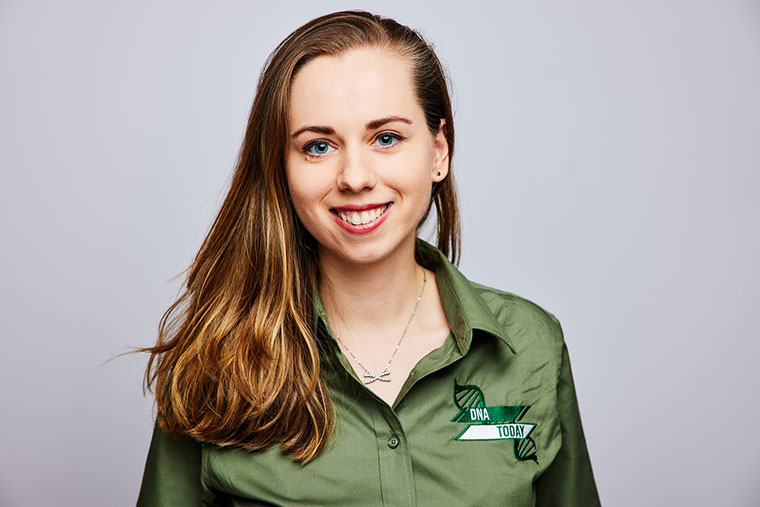
“One of the reasons I dreamed of going to SLC was to develop relationships with future colleagues that I could also call best friends. I’m happy to report this became a reality!”
An award-winning podcast host and producer, Kira Dineen MS ‘20 is the brain (and voice) behind DNA Today. With her ever-popular platform, Kira educates listeners through informative interviews with genetic counselors, patient advocates, and other thought leaders in the genomics space. As a licensed genetic counselor and journalist, Kira is a part of a tradition of Sarah Lawrence alumni who are multi-hyphenates. However, Kira insists that the effective communication skills she honed during her time in the program are applicable to both direct patient session and podcast interviews.
What does an advanced degree from Sarah Lawrence mean in the field of genomics?
[It means] recognition in our genetic community, as SLC was the place where the genetic counseling field was founded. In 2023, one in every five genetic counselors graduated from SLC, so a connection to alumni happens often when I [speak] with others in our field. This makes it easy to start a conversation when you realize you both graduated from the same program.
Is there a course or faculty member that particularly influenced you?
In so many courses, it was incredibly useful to hear directly from patient advocates who presented to our class. I could start to understand their struggles, perspective, and how we, as budding genetic counselors, could better serve fellow patient advocates.
What was the dynamic of your cohort?
We were a close class! I lived with four classmates and, around the corner, were two other ‘genetic counseling’ houses. One of the reasons I dreamed of going to SLC was to develop relationships with future colleagues that I could also call best friends. I’m happy to report this became a reality!
What advice would you give to a prospective student weighing where/how to rank Sarah Lawrence?
I was in the first year of the match program, and I ranked SLC first for many reasons. A major one was the large alumni community. I [also] anticipated that (and later experienced) rotations would provide a diversity of specialties, patient populations, locations, and more.
What advice would you give to students entering or in the program?
Get as much exposure as you can whether that is shadowing genetic counselors, attending webinars, reading books/articles, listening to podcasts, interviewing people about their roles, anything you can access to immerse yourself in the field.